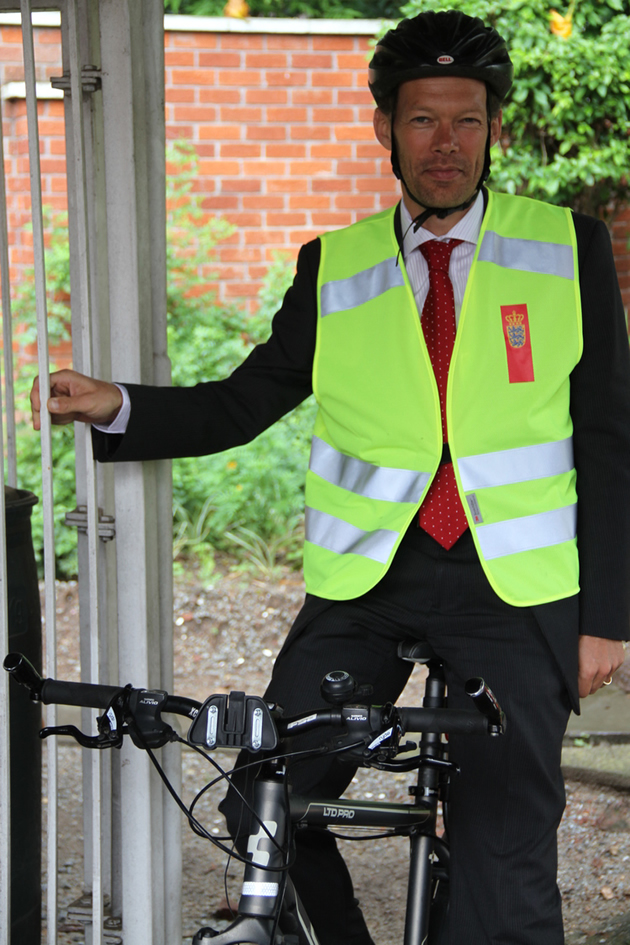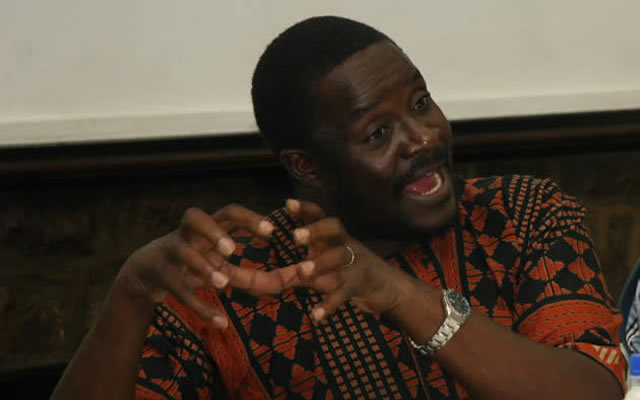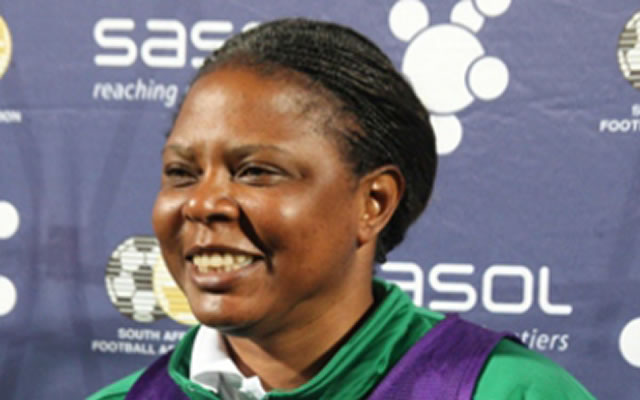The diplomat who cycles to work

 Fanuel Kangondo Deputy Lifestyle Editor
Fanuel Kangondo Deputy Lifestyle Editor
Picture this scenario: A top executive pulls up a high rise building and dutifully parks his bicycle then walks up to his office and takes a few minutes to spruce up his image and office attire before disappearing behind an executive desk ready to carry out the business of the day.
While this may not sound very familiar in the Zimbabwe set up where walking or cycling is considered a burden of poverty and not a lifestyle option, it is the routine for the Royal Danish Embassy Charge d’Affaires ep Mr Erik Brogger Rasmussen who cycles to and from work every day. Spotting a Danish Embassy reflector jacket and a helmet, he has become a familiar sight in the environs. He parks his bicycle next to the luxurious Volvo S80 for the head of mission of the Embassy of the Kingdom of the Netherlands in Harare with whom they share the serene premises in Newlands.
A career diplomat who has been in service for the past 20 years, Mr Rasmussen (45) said he was motivated to taking on cycling as it was common cultural practice in Denmark where the majority of people cycle to work. With a population of five million people, the diplomat says there are more bicycles than inhabitants in Denmark.
“I cycle to work every day and it takes me about 20 minutes to reach the office over a distance of about 8,5 km and that is the reason why you see all these clothes in my office, that’s my formal attire,” he points to some outfits ranging from formal suits, ties and shirts on a clothes hanger.
And cycling has helped him improve his mental alertness and gives him a good start to each day. Mr Rasmussen appears to have taken an affinity to cycling and on weekends his wife and three children join other cycling enthusiasts to cycle on the outskirts of Harare. Prior to his posting, the diplomat served in Poland and Palestine. He cycled in the first country and had to give up on that habit when he went to Palestine because of security concerns.
Coming to Harare after a temporary 10-year severance of ties between the two countries at the height of the country’s land reform programme in 2001, the diplomat said relations had improved as evidenced by the increasing amount of donor support that is expected to reach US$37 million by the end of next year. He maintains that Denmark never questioned the need for land reform in Zimbabwe, but only had some reservations over the way it was done.
“The history of Zimbabwe and Denmark dates back to the 1970s when we and other Nordic countries opposed apartheid and supported the liberation struggle for this country and at independence in 1980 we established diplomatic relations with the Government. Through Danida we were involved in some strong collaboration until the embassy was closed in 2001.
“It was not an issue about us not believing that land reform was needed, but the way it was done. We never questioned that land reform was needed. We went away briefly and when we reopened in 2011 the office has been growing and we have an aid programme that is increasing and we are expecting another diplomat to join us this summer.”
Denmark has since emerged as one of the largest bilateral donors in the country. Mr Rasmussen said they were concentrating on core areas incorporating governance and justice, supporting human rights organisations, infrastructure development and private sector development in agriculture through liquidity support to financial institutions. Danida is working with some financial institutions to provide credit lines that will allow farmers to borrow money at affordable interest rates.
A significant area of co-operation with the Danish government is the refurbishment of magistrates’ courts countrywide and by 2016 the programme would have seen 30 magistrates’ court renovated as well as new structures built.
This also includes information communication technology investments and training of magistrates.
On the subject of the illegal economic sanctions imposed on Zimbabwe, Mr Rasmussen said that Denmark was bound by the EU position as it was collectively agreed on by the 28-member bloc of countries and the position was reviewed from time to time. A review of the position is expected by the end of this month and the diplomat declined to speculate on the outcome of the deliberations.
Outside his official schedule, Mr Rasmussen said he likes to meet people whenever he can and has so far travelled to the Eastern Highlands, Hwange and Victoria Falls. He also dedicates some time to his family and his favourite pastime, cycling and this rekindles some homeland memories where they have built bicycle highways to cater for the huge numbers of commuters that ride to work.










Comments